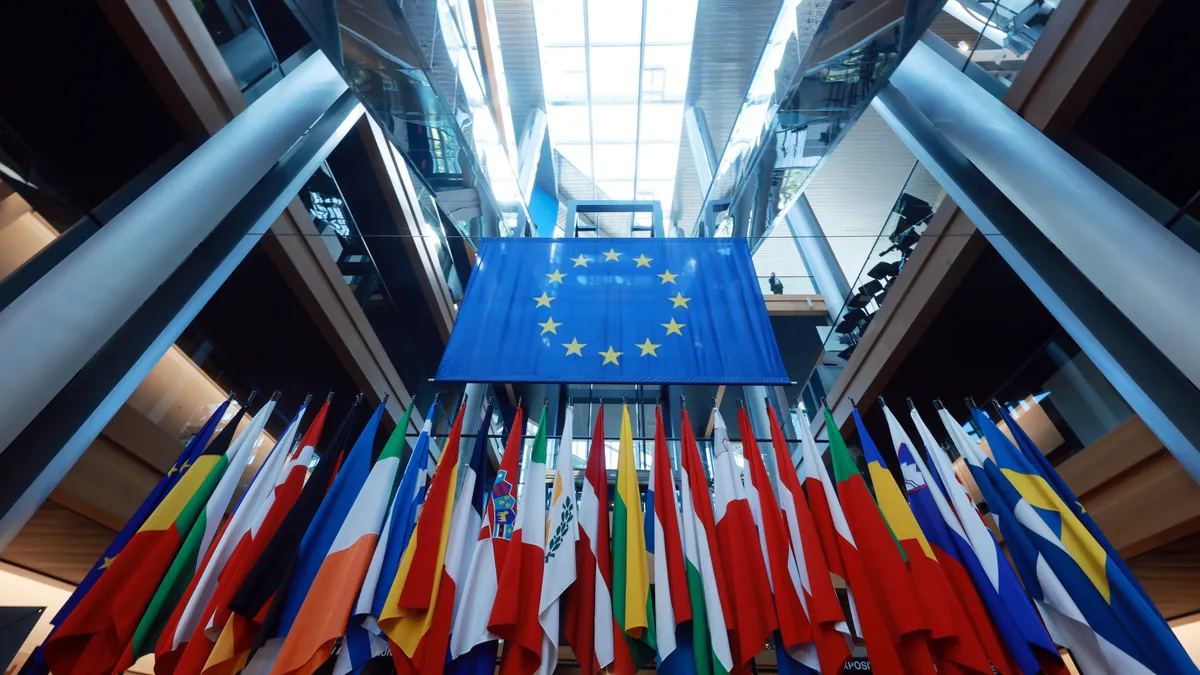While the U.S. Securities and Exchange Commission has stopped defending its climate-risk disclosure rule in the United States, legislators across the Atlantic are working to simplify corporate sustainability reporting requirements for companies operating in the European Union.
Efforts to simplify the bloc’s Corporate Sustainability Reporting Directive and Corporate Sustainability Due Diligence Directive began in earnest in February. The European Commission adopted a package of bills designed to streamline the scope of the laws and delay the next wave of CSRD reporting companies — which includes non-EU entities — and the first application phase for CSDDD reporting until 2028.
The European bloc of countries’ legislators in the European Council and European Parliament followed suit and adopted a “stop the clock” measure to delay reporting, as they sort out the underlying changes. While the delay had broad support, simplifying the underlying laws faces a “split” Parliament and is expected to take up to a year, according to EU policy advisers and lobbyists.
The European Commission said its proposed changes would remove approximately 80% of companies from the CSRD’s scope. Deloitte previously estimated that more than 3,000 U.S. companies would be required to comply with the CSRD.
Both laws have drawn the ire of congressional Republicans in both chambers this year. House Financial Services Chair French Hill, R-Ark., said the CSDDD should be treated as a “non-tariff barrier” for U.S. companies, while Tennessee Republican Sen. Bill Hagerty, a Senate Banking Committee member, has introduced a bill that would bar compliance with foreign sustainability due diligence laws for companies “integral to the national interests of the United States.”
Catch up on ESG Dive’s coverage of the ongoing simplification efforts here.











